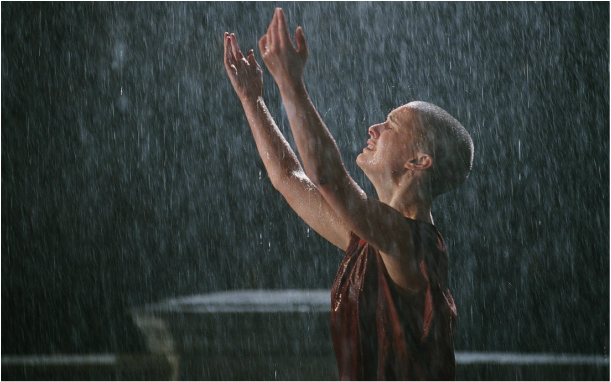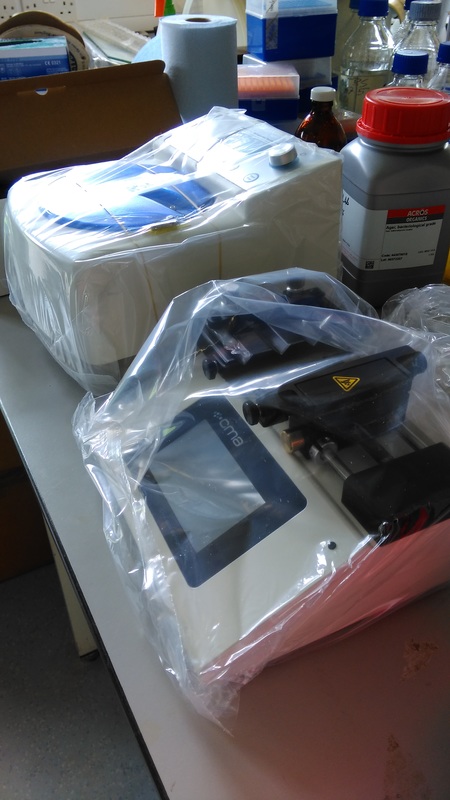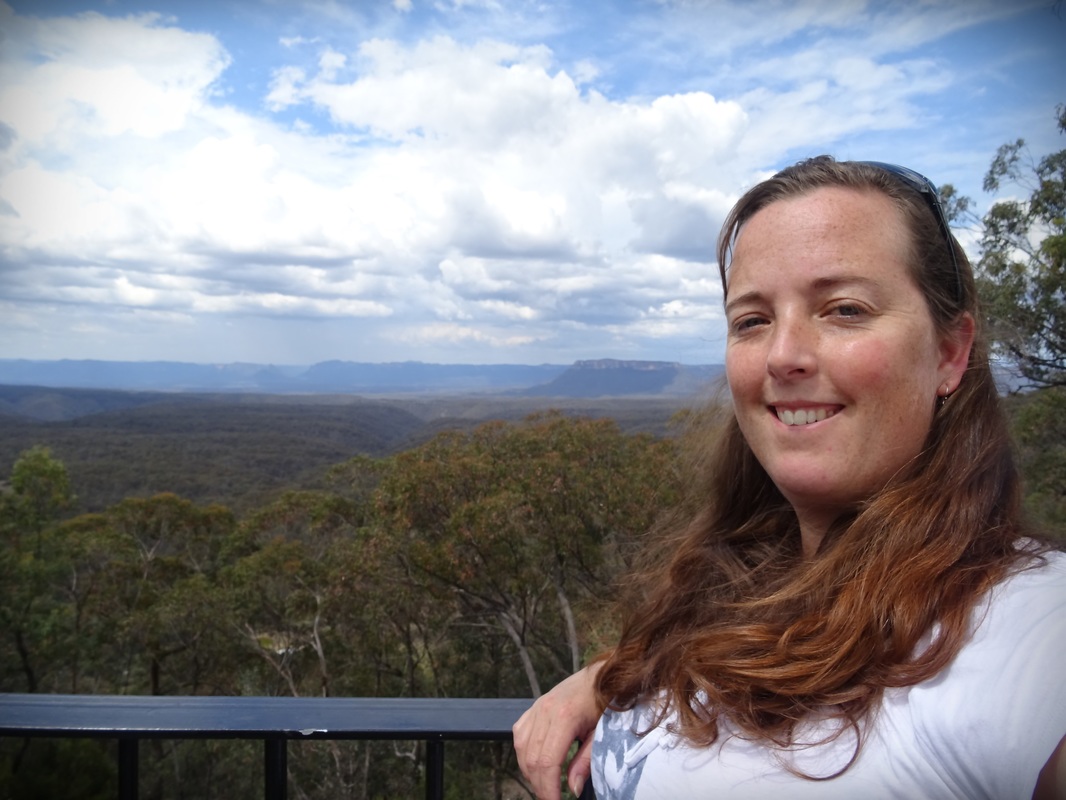 Scene after Evey is freed from her 'prison' in 'V for Vendetta' Scene after Evey is freed from her 'prison' in 'V for Vendetta' I'm not much of a women's libber- I do think we need to work towards better balance in the work force (or in any non-traditional-women's activity) but I've been pretty lucky with supportive parents and mentors both male and female. Since moving to England I've been more conscious of the biases - some of the comments I've heard are so extreme they're funny...but that's a story for another day! Yesterday I gave a talk in a series about redressing the balance in Biosciences. The series is open to all and addresses a lot of issues that both men and women face but with a focus in particular towards helping women see that it is possible to be a woman and an academic - so most (if not all!) of the speakers are women. The forum yesterday consisted of 4 female academics and the diverse pathways we have taken into academia and, perhaps not surprisingly, there were a lot of common themes - including linked to being brave - take opportunities even if you're not sure you can do it perfectly - stand up for what you need or want - don't be afraid to say 'No' if you are too busy or it isn't in line with your goals - Rather timely, I was flicking through my twitter feed and saw this TED talk which is directly on this need to teach women to be brave not perfect so I thought I would share the link here. It's very true - I've always been afraid to make mistakes - it wasn't until my first post-doc I learnt bravery. That first post-doc was one of the most difficult times of my life with a supervisor who feels that the only way to succeed in science is to be a bastard (apologies for the language - his words, not mine). Two years of being crushed and insulted and having the confidence kicked out of me. But everyone has a cracking point and everyone reacts differently - I snapped back and told them stick it - I had reached a point where if that's what it meant to be a scientist then I was absolutely ready to quit science. I realised that this was an ethical/moral/personal line I was never, ever going to cross. This meant that at 32 I found bravery. The bravery to really stand up for what I think is right, or fair under the circumstances, to say 'No' if I don't want to do something, to not worry whether I might fail. 2 years on a downward spiral until I hit the bedrock just to learn that. In the past I was pro-active and I did get involved in lots of things - but I did worry about failing - I did get things 'right' before I shared them - I never wanted to admit if something had failed - and it IS a handicap. We shouldn't be afraid of failure. That bad experience taught me that no matter how many mistakes I make, at least I wont be as bad as some of the people I've worked for! Sad that I need that bad comparison to be brave but I'm gaining confidence with every new thing I do (whether I fail and learn from it, or succeed and celebrate). And I'm not afraid to fail or share those failures anymore (you can read a summary list of my failures on my blog from the 30th April here). -Ok there are still certain people I wont tell failures to because those people impact my confidence - I'm not perfect - but I'm learning bravery! :) https://www.ted.com/talks/reshma_saujani_teach_girls_bravery_not_perfection?language=en#t-239685
1 Comment
Day 1 of leadership training with a fantastic bunch of new academics and senior postdocs from The University of Nottingham and The University of Birmingham. Fun but hectic day getting to know our support teams and learning about ourselves.
At the core of the day was the Myers Briggs Type Indicators. Interestingly I've done one of these before and it came out really similar again this time...the only difference being that instead of being just on the extrovert side of the line I was just on the introvert side of the line...but otherwise the categories (and position on the continuums) were much the same as last time! So I'm an ENFJ or INFJ... The four dichotomies are: Extrovert - Introvert Sensing - iNtuition Thinking - Feeling Judging - Perceiving These are not right or wrong, or yes or no, but rather occur on a continuum. If you're interested you can look up more details elsewhere. Also important is just because people have a natural preference for one or other of the dichotomy choices, doesn't mean people can't work (or learn to work) in their non-favoured preference. Learning about this can help understand why other people might have different ways of working. So I'm either ENFJ or INFJ The short summary's of these are: INFJ: Seek meaning and connections in ideas, relationships and material possessions. Want to understand what motivates people, and are insightful about others. Conscientious and committed to their firm values. Develop a clear vision about how best to serve the common good. Organised and decisive in implementing their vision. ENFJ: Warm, empathetic, responsive and responsible. Highly attuned to the emotions, needs and motivations of others. Find potential in everyone, want to help others fulfil their potential. May act as catalysts for individual and group growth. Loyal, responsive to praise and criticism. Sociable, facilitate others in a group, and provide inspiring leadership. All 16 combinations have different strengths - and weaknesses! As to which of these two types I fall most in I shall leave to the decision of people I work with. So that's who I am....who are you? Thanks to the Rank Prize New Lecturer award, some new toys -I mean tools- arrived in my lab today! Bring on the microdialysis fun!
|
AuthorAmanda Rasmussen Archives
May 2023
Categories |

 RSS Feed
RSS Feed
